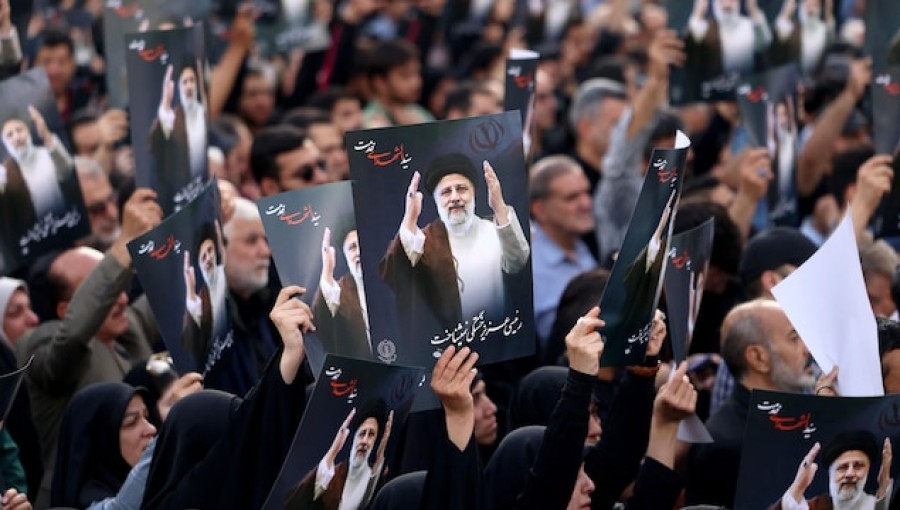Iran has entered a new chapter with the burial of President Ebrahim Raisi, prompting extensive analyses and speculations about Tehran's future. Questions are circulating about who will succeed him as president or even as the supreme leader, with many experts predicting that the transition will not bring about significant changes in Iran’s foreign or domestic policies.
Raisi, who died in a tragic helicopter crash, was laid to rest in his hometown of Mashhad after days of national mourning. His death has led to a period of uncertainty and speculation about the country's next leadership. Political analysts believe the foreign policy will remain stable, and the internal, regional, and political contexts of Iran are expected to remain largely unchanged.
As the mourning period continues, discussions have intensified regarding whether a presidential election can be organized within the next 50 days. This timeframe coincides with the 35th death anniversary of Iran's late Supreme Leader Ayatollah Ruhollah Khomeini, adding another layer of complexity to the situation.
Several names have emerged as potential candidates for the presidency, including Mohammad Mokhbar, the current First Vice President; Parliament Speaker Mohammad-Bagher Ghalibaf; former Parliament Speaker Ali Larijani; and former nuclear chief Ali-Akbar Salehi. Raisi's wife, Jamileh Alamolhoda, is also being considered a potential candidate. Despite the variety of names, political analysts suggest that none of the candidates from the hardliner faction are likely to ascend to the presidency.
The speculation extends to the position of supreme leader, with Raisi having been viewed as a leading successor to Ayatollah Ali Khamenei. Now, attention has turned to Khamenei's son, Mojtaba Khamenei, as a potential successor. Regardless of who ultimately takes over, experts assert that there will likely be no major shifts in the policies established by Ayatollah Khamenei.
The death of President Raisi has undoubtedly created a period of transition and reflection within Iran. However, the country's path forward, both in terms of leadership and policy, appears to be one of continuity rather than radical change.





























Comment: